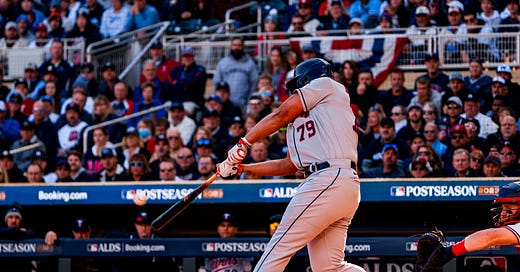Before José Abreu exploded for three home runs in his final two ALDS games against the Minnesota Twins at Target Field, there was a trend that set off alarm bells: Pitchers hadn't gotten him to miss even one swing.
They were fighting, literally. And they fell far short of establishing a viable point of attack inside or outside the strike zone. Bailey Ober




